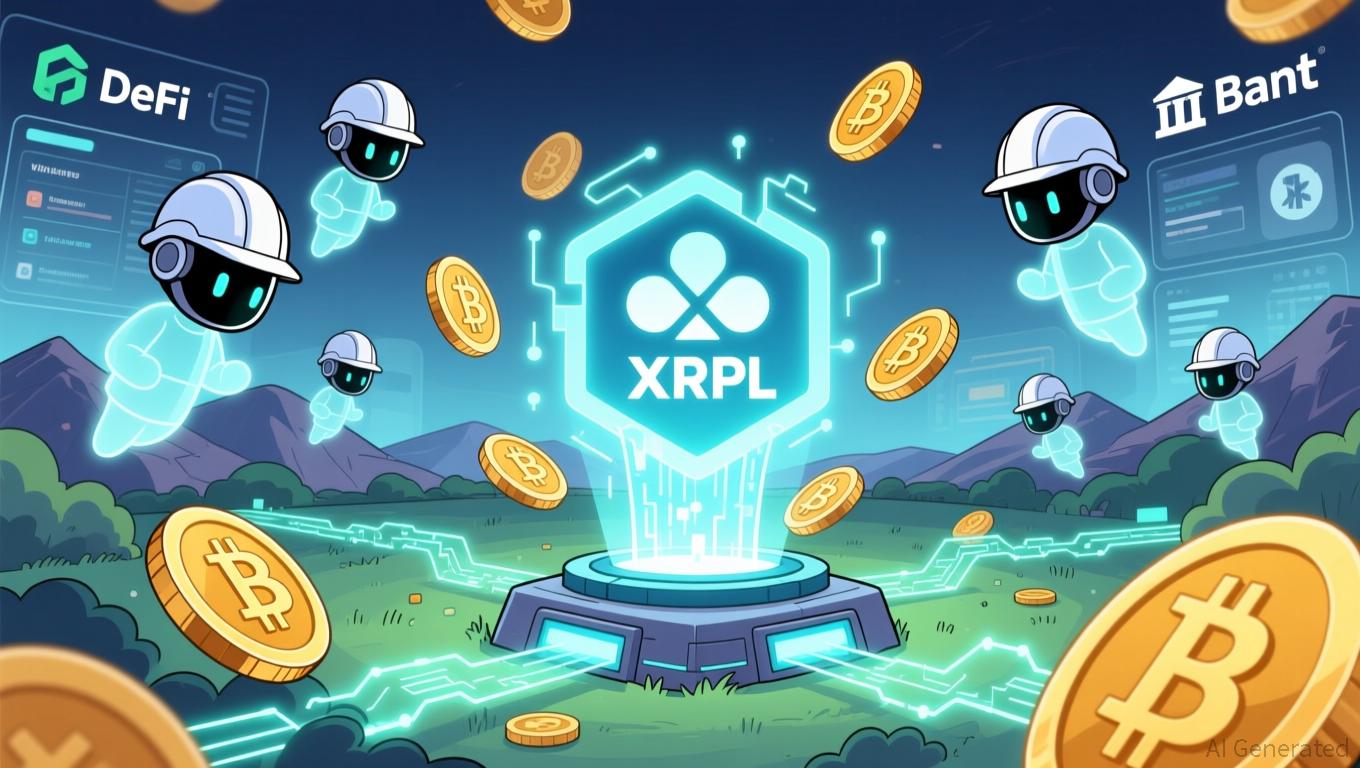XRP News Today: Ripple Faces a Staking Dilemma on the XRP Ledger: Balancing Trust and Incentive Conflicts
- Ripple explores XRP Ledger staking to boost DeFi integration and institutional use. - CTO David Schwartz outlines two staking models, but implementation is distant due to architectural complexity. - Staking aims to enhance security and incentivize token holders, aligning with crypto trends while addressing bank needs for cost efficiency and compliance. - Ripple also seeks Fed account access to improve RLUSD stability, leveraging direct Treasury conversions for faster settlements.
Ripple (XRP) is considering adding staking capabilities to its
The suggested staking models are designed to improve XRPL’s security and encourage token holders to participate over the long term. One proposal features a two-tier consensus approach: an inner validator group, chosen by stake, would handle ledger updates with slashing and staking, while an outer group would focus on governance. The alternative would keep the current Proof of Association system but use transaction fees to support zero-knowledge proof (ZKP) verification, allowing for more trustless validation.

Ripple’s investigation into staking reflects a wider movement in the crypto sector, where staking is now central to network security and user participation. For the banking sector, the advantages are evident: staking could lower operational expenses, boost transparency, and make cross-border payments more efficient—areas where XRP already has a foothold. J. Ayo Akinyele, who leads engineering at RippleX, believes staking could transform the incentives for both validators and token holders, creating a stronger ecosystem.
This move is particularly timely. Earlier this month, Ripple’s chief legal officer, Stu Alderoty, expressed support for a Federal Reserve proposal that would allow crypto companies to access so-called “skinny” Fed accounts. Such access could let stablecoin providers like Ripple bypass conventional banks, speeding up settlements and cutting costs.
Although staking on XRPL is still in the conceptual stage, Ripple’s emphasis on regulatory compliance and operational improvements highlights its goal to connect traditional finance with DeFi. For banks, Ripple’s offerings—from cross-border payment solutions to possible staking features—provide tools to adapt to a financial world increasingly influenced by digital assets. As the Fed’s proposed payment system changes progress, Ripple’s technological flexibility may shape its future role in financial innovation.
Disclaimer: The content of this article solely reflects the author's opinion and does not represent the platform in any capacity. This article is not intended to serve as a reference for making investment decisions.
You may also like
XRP News Update: XRP ETFs Confront Downtrend While Key Support Levels Face Pressure
- XRP faces downward pressure near $2.27 amid $15.5M institutional outflows and declining futures open interest ($3.61B), signaling waning speculative interest. - Four XRP ETFs launching this week, including Canary Capital's $58M-volume XRPC , could drive $4B-$8B in inflows to counter recent outflows and stabilize pricing. - Technical indicators show XRP trading below key EMAs ($2.49/2.56) with fragile $2.20 support level repeatedly tested, while RSI (43) and bearish MACD confirm short-term selling pressur

Regulated or Decentralized: Kalshi’s $11 Billion Boom Sparks a Prediction Market Frenzy
- Kalshi's valuation jumped to $11B after a $1B funding round led by Sequoia and CapitalG, doubling from October 2025. - The CFTC-regulated platform competes with decentralized rival Polymarket, which targets $12B-$15B in its next funding. - Kalshi dominates 61.4% of prediction market trading volume, boosted by NYC election accuracy and subway ad campaigns. - Partnerships with Google Finance, Robinhood , and Barchart expand Kalshi's reach, contrasting Polymarket's crypto-centric innovations. - The $17.4B+

Bitcoin’s Sharp Decline: Causes Behind the Fall and Future Outlook
- Bitcoin fell below $100,000 in Nov 2025 due to macroeconomic shifts, regulatory ambiguity, and ETF outflows. - SEC's reduced crypto enforcement and Trump-era tariffs created uncertainty, while Treasury volatility and supply chain disruptions pressured risk assets. - BlackRock's IBIT ETF saw record outflows, contrasting with Abu Dhabi's tripled stake, as technical indicators showed oversold conditions and bearish momentum. - Experts remain divided: MSTR predicts $150k by year-end, but prediction markets s
Senate Crypto Legislation Transfers Oversight to CFTC Amid Rising Partisan Debate
- U.S. Senate proposes bipartisan bill transferring crypto regulation to CFTC, limiting SEC's role and classifying most cryptocurrencies as commodities. - Trump's CFTC nominee Selig faces scrutiny over agency staffing and bipartisan governance, with Democrats warning of political bias risks under single Republican leadership. - Industry supports CFTC's expanded oversight for regulatory clarity, but critics question its capacity to enforce AML standards and manage crypto market growth. - Finalized framework
